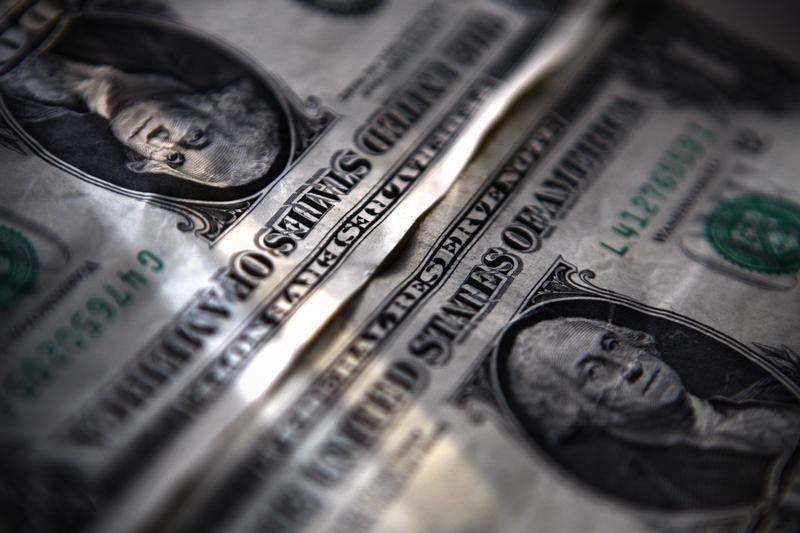By Peter Nurse
Investing.com – The U.S. dollar slumped to a one-year low in early European trade Friday on raised expectations that cooler-than-expected inflation data will result in an early end to the Federal Reserve’s rate-tightening cycle.
At 02:00 ET (06:00 GMT), the , which tracks the greenback against a basket of six other currencies, traded 0.2% lower at 100.515, trading at levels last seen in April last year.
The index is on course for a weekly decline of more than 1%, its steepest since January.
These dollar losses followed the release of the March U.S. , which fell 0.5% from a month earlier, the biggest drop since the start of the pandemic.
The PPI slowed on an annual basis, rising 2.7% from a year ago, the smallest gain in more than two years, while excluding the volatile food and energy components, the so-called fell 0.1% from February and increased 3.4% from a year ago.
These numbers came just a day after posted the smallest annual increase since May 2021.
The is still widely expected to lift interest rates again next month, probably by just 25 basis points, but expectations are growing that the U.S. central bank will be cutting interest rates before the end of this year.
“It seems that investors are very much welcoming the forthcoming Fed easing cycle (after one last hike in May), they have a conviction call that the dollar will weaken, and are looking for opportunities,” said analysts at ING, in a note.
Friday brings more economic data, of which the highlight is the March release, which is expected to show a monthly contraction of 0.4%, the same as the prior month, as consumers struggle with inflation cutting into their disposable income.
rose 0.2% to 1.1069, rising to a fresh one-year high, after data released Thursday showed remained elevated, pointing to the continuing to hike interest rates for longer than its U.S. counterpart.
The ECB needs to keep raising interest rates, said Governing Council member Pierre Wunsch Thursday, and the market’s expectation for another 75 basis points of increases was “reasonable,” but expectations of a rate cut around the turn of the year were not.
“I think May will be about 25 or 50 basis points,” Wunsch said.”If there’s another upside surprise in core inflation and the (ECB’s quarterly) lending survey doesn’t look too bad, we might have to do 50.”
There’s more inflation data to study Friday, with March consumer prices from and scheduled.
rose 0.1% to 1.2535, hitting a 10-month high, with the seen raising rates again in May, with U.K. inflation remaining in double digits, having surprised by accelerating to 10.4% in February.
“The soft dollar story is keeping GBP/USD bid near 1.2500 and pressure seems to be building for a move to 1.2650/2750 – again driven from the dollar side,” ING added.
Elsewhere, traded largely flat at 0.6782, but the Aussie dollar was set for a 1.7% jump this week as a substantially stronger-than-expected employment report spurred increased bets that the Reserve Bank may yet higher.
fell 0.1% to 132.50, while fell 0.5% to 6.8382, with the yuan helped by PBOC Governor Yi Gang reiterating the government’s 5% GDP target for 2023.
Read the full article here




